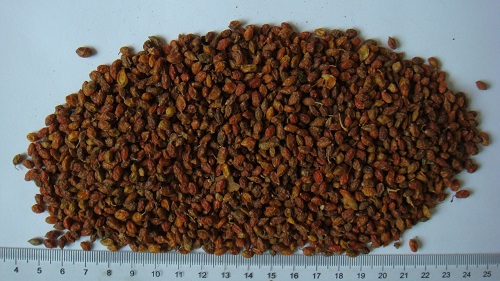Sea Buckthorn

Sea buckthorn (Hippophae rhamnoides) is one
of the important natural resources of the mountainous regions of China and
Russia. The plant grows naturally in sandy soil at an altitude of 1,200-4,500
meters (4,000-14,000 feet) in cold climates, though it can be cultivated at
lower altitudes and into temperate zones. Recently it has been extensively
planted across much of northern China, and in other countries, to prevent soil
erosion and to serve as an economic resource for food and medicine products.
For example, Canada has invested in planting sea buckthorn, originally brought
over from Siberia in the 1930s, hoping to develop a good agriculture market;
Saskatchewan has ideal growing conditions, yielding a high quality product.
Aside from erosion control, the plant is
primarily valued for its golden-orange fruits, which provide vitamin C, vitamin
E, and other nutrients, flavonoids, oils rich in essential fatty acids, and
other healthful components. The leaves are now also being used for making a
beverage tea; they additional contain triterpenes. The following constituents
are among those that have been found in the fruits: